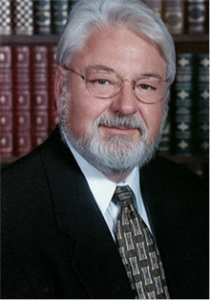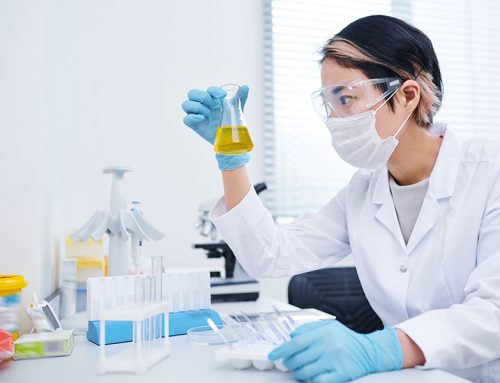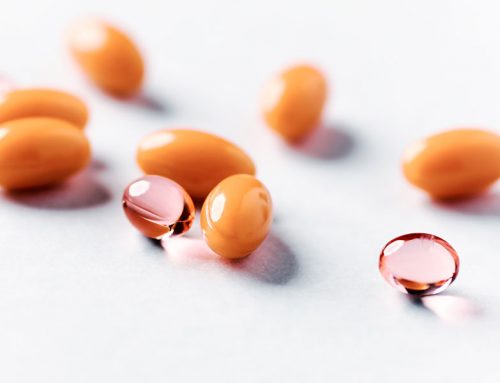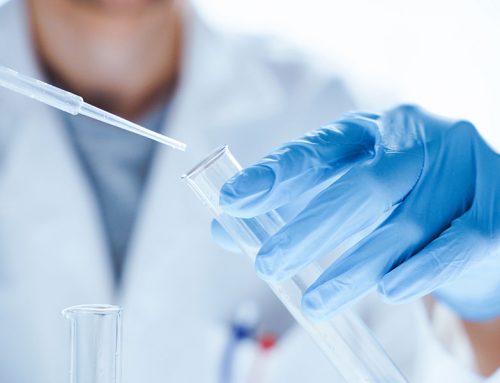
People deciding on a nutritional supplement need more than undocumented marketing claims. They need evidence from randomized controlled studies. They need evidence that shows whether the difference in the outcome, e.g. heart function, between the active Coenzyme Q10 treatment study group and the placebo treatment study group is statistically significant.
Sometimes we see people and companies making incorrect and misleading claims without proper documentation to support their claims. There have been concerns about claims for ubiquinol products, and in the years since its introduction in 2007, there have been some questionable claims for the ubiquinol version of Coenzyme Q10 supplements. The ubiquinol version is not nearly as well tested and documented as the traditional ubiquinone Coenzyme Q10 version is.
In the articles on this web-site, we prefer to report the positive results from randomized controlled trials involving the use of Coenzyme Q10 supplements. But, occasionally, we must react negatively to the misleading claims that we see in some of the advertisements for some of the Coenzyme Q10 products available for purchase in the US.
Recent misleading claims for a ubiquinol product
Recently, we were looking at some marketing claims for ubiquinol products. The products are available in the local discount department store. It is possible to look the products up on the Web. Here are some of the claims that are being made for these ubiquinol products. There does not seem to be solid scientific documentation for any of the claims.
- 3 times better absorption than regular CoQ10
- absorbs 300% better than regular CoQ10
- the #1 Cardiologist recommended form of CoQ10
- the #1 Cardiologist recommended supplement for patients on statin medications
- a completely water and fat soluble formulation
- passes the USP dissolution test
- Ubiquinol the only active form of Coenzyme Q10
Background: the difference between ubiquinol products and ubiquinone products
Coenzyme Q10 is a redox molecule. It has an oxidized form (Ubiquinone) and a reduced form (Ubiquinol). Both forms are active forms; both are very much lipid-soluble. The ubiquinone form is an essential component of cellular energy production process. The ubiquinol form is an important element of the cells’ antioxidant defense.
If you cut into a capsule, you should be able to see which form you have purchased. The ubiquinone form will show a bright yellow/orange color; the ubiquinol form should be milky white. If you cut into a ubiquinol capsule, and the color is more yellow/orange than white, then you know that the ubiquinol contents have already oxidized before you can swallow the capsule. Ubiquinol is notoriously unstable and difficult to work with.
Where is the documentation to support the ubiquinol claims?
Let’s take these claims one at a time.

Dr. William Judy, director of the SIBR Research Institute and a long-time Coenzyme Q10 researcher, says that the claims of 300 percent better absorption for a ubiquinol product have come from comparisons that were done with dry powder Coenzyme Q10 supplements and with older Coenzyme Q10 supplements containing Coenzyme Q10 crystals in oil. The ubiquinone studies were done years earlier than the ubiquinol studies, they used different study protocols and different analytical methods and different labs, and they enrolled participants with different characteristics.
Three times better absorption?
We have not seen any published head-to-head comparisons of any ubiquinol product with a well-formulated Coenzyme Q10 supplement in the form of ubiquinone. The three times better absorption claim can come only from a comparison with an older Coenzyme Q10 formulation in an older study.
Remember: the body cannot absorb the crystals. Dr. Judy’s own absorption studies show that best formulated ubiquinone Coenzyme Q10 supplements compare very favorably, in terms of absorption, with the available ubiquinol supplements [Judy]. We do not know how the ubiquinol products stack up with the better ubiquinone supplements in promoting good heart health because the ubiquinol products have not been tested in carefully designed randomized, double-blind, placebo-controlled studies in the way that a well-formulated ubiquinone Coenzyme Q10 supplement has been.
The #1 cardiologist recommended Coenzyme Q10 supplement?
Really? Who did the survey? How was the sample drawn? Where have the results been published?
A completely water and fat soluble formulation?
This is surely a pie-in-the-sky claim? According to Dr. Judy, the Coenzyme Q10 molecule can perhaps be altered to make it a bit less hydrophobic, but any alterations that would make the Coenzyme Q10 molecules substantially water-soluble would change the molecules so much that they would cease to be Coenzyme Q10 molecules.
To which we want to add the question: where are the published results of well-designed and well-executed studies that show beneficial effects of ubiquinol supplements in promoting good heart health?
Passes the USP dissolution test?
What lab conducted this test, please? What method was used in the testing? Where are the results published? This claim represents that the ubiquinol product does pass the United States Pharmacopeia (USP) dissolution test and states, further, that the ubiquinone Coenzyme Q10 supplements do not pass the test. This is a breathe-takingly broad statement, with no documentation whatsoever.
Actually, when Dr. Judy, in his lab, looked at the ubiquinol product with a microscope, he could see that it is full of crystals. So many crystals in a Coenzyme Q10 supplement will not yield an absorption rate that is three times better than the absorption rate of well-formulated Coenzyme Q10 supplement.
Ubiquinol the only active form?
Ubiquinol is the only active form of Coenzyme Q10 functioning as an antioxidant, but it is not the active form in the synthesis of energy. Only the oxidized form, ubiquinone, which is a hydrogen ion acceptor, can act as an electron carrier to shuttle electrons across the inner membrane of the mitochondria. In fact, ubiquinol, itself an electron donor, is produced during the synthesis of cellular energy in which ubiquinone is the active form.
What is going on here with ubiquinol and unsubstantiated marketing claims?
Firstly, There are competing suppliers of the ubiquinone Coenzyme Q10 raw material in the world. The producer of the ubiquinol raw material, on the other hand, has a monopoly on the world production and distribution. With these facts in mind, we can perhaps see why there are so many exaggerated and undocumented claims for the ubiquinol product even though the effects of the ubiquinone Coenzyme Q10 are much better researched and documented.
Secondly, Dr. Judy published his well-reasoned comparison of claims for ubiquinol and ubiquinone Coenzyme Q10 ten years ago in 2007. He called his paper Coenzyme Q10: Facts or Fabrications?” In the ten years or so since Dr. Judy’s paper, no one has published the results of a head-to-head comparison of the absorption and steady-state bio-availability of ubiquinone Coenzyme Q10 and ubiquinol Coenzyme Q10.
Why has no one refuted any of the points that Dr. Judy made in this seminal paper? Dr. Judy pointed out that the forms of Coenzyme Q10 are easily converted from one to the other and back again.
Thirdly, yes, the ubiquinol form is important as a lipid-soluble antioxidant, but there is no evidence that we need to take the supplement in the form of ubiquinol to get adequate ubiquinol into our blood circulation. The absorbed ubiquinone will be converted to the ubiquinol form as it passes from the absorption cells to the lymph.
In fact, there is evidence to suggest that the ubiquinol in supplements will be converted to the ubiquinone form of Coenzyme Q10 in the stomach and the small intestine and then absorbed as ubiquinone before being converted back to ubiquinol in the lymph.
Why buy ubiquinol then?
Given the lack of solid scientific documentation, why buy a heavily marketed but unproven and most likely unstable ubiquinol product instead buying a well-researched and well-documented ubiquinone Coenzyme Q10 supplement?
Ubiquinone Coenzyme Q10 supplements have been used in the following randomized controlled trials:
Q-Symbio study: significant improvement in the symptoms and survival of chronic heart failure patients [Mortensen] KiSel-10 study: significant reduction of death from heart disease and significantly better heart function (compared to placebo) in elderly study participants aged 70-80 years [Alehagen] Gulf War Illness study: significant improvement of various measures of function and quality of life in veterans of the first Gulf War [Golomb]
Sources
Alehagen, U., Aaseth, J., & Johansson, P. (2015). Reduced Cardiovascular Mortality 10 Years after Supplementation with Selenium and Coenzyme Q10 for Four Years: Follow-Up Results of a Prospective Randomized Double-Blind Placebo-Controlled Trial in Elderly Citizens. Plos One, 10(12), e0141641.
Golomb, B. (2014). Coenzyme Q10 and gulf war illness. Neural Computation, 26(11), 2594-651.
Judy, W. V., Stogsdill, W. W., Judy, D. S., & Judy, J. S. (2007). Coenzyme Q10: Facts or Fabrications? Natural Products Insider. Retrieved from http://www.zmc-usa.com/docs/CoQ10_Facts_or_Fabrications.pdf.
Mortensen, S. A., Rosenfeldt, F., Kumar, A., Dolliner, P., Filipiak, K. J., Pella, D., & Littarru, G. P. (2014). The effect of coenzyme Q10 on morbidity and mortality in chronic heart failure: results from Q-SYMBIO: a randomized double-blind trial. JACC. Heart Failure, 2(6), 641-649.
The information present in this review article in not intended as medical advice and should not be used as such.









it seems on alot of health shows over the radio and the Internet promote the use of ubiquinol and that is the best one to take and ubiquinone is no good
Hi, Ed,
I think you are right that ubiquinol has been extensively marketed. Why is that, I wonder.
Some of the claims — the better absorption, the need for the ubiquinol form — are misleading.
Neither the stability nor the efficacy of ubiquinol has been documented as well as for ubiquinone.
We are still waiting to see the results of a good head-to-head absorption test.
And, in my own mind, I keep coming back to Dr. Judy’s demonstrations that the content of ubiquinol supplements is converted to the ubiquinone form in the stomach and small intestine before absorption. So, what is the point of ubiquinol, I ask myself, except to have a new and exclusive product to market?
Thank you,
Richard
thanks for the input
Hello, Ed,
If you can, get a copy of this paper and read it re bio-availability of various ubiquinone and ubiquinol formulations.
https://www.nutritionjrnl.com/article/S0899-9007(18)30488-X/abstract
Richard
thanks for the link BTW I have had a blood test for coq10 and the results came back 0.8mg was not taking any coq10 what amount would you think I would need for maintenance and I’m also on lisinopril 5 mg thanks
Ed,
The researchers seem to think that Coenzyme Q10 has therapeutic value when the concentration in plasma or serum is 2.5 to 3.5 micrograms per milliliter.
It should be possible to achieve that level with 2 times daily 100 milligrams of Coenzyme Q10 in a soft-gel capsule, taken with meals.
Good luck,
Richard
thanks for the input
Is there a difference between the coq10 bio quinone GOLD depending on which country you purchase it from? I have looked at this product here in the UK from Pharma Nord UK and it is packaged as capsule, but if I look at
Pharma Nord say for instance, in Denmark, then it is packaged as soft gel. My question is this, Am I getting the same product in the UK as that manufactured presumably in Denmark. Are there any marked differences in the standard’s and production of this product. I would gladly pay more to receive this product from outside the UK. Incidentally both packages claim to be the same product used in the Coq10 trials.
Thanks,
Simon.
Whew, Simon, just happened to see your email in my Spam folder. Close one.
My understanding is that the Bio-Quinone Q10 product, produced in Denmark under pharmaceutical control and used in the Q-Symbio study and the KiSel-10 study, is the same patented formulation throughout the EU and the UK.
Just a different language on the boxes.
You can check with the people at Pharma Nord UK – 01670 534 900.
Best regards,
Richard
Thank you very much for your prompt reply Richard, most helpful
Simon.
Hi Richard,
I ordered some Ubiquinol and ubiquinone boxes, the label is distorted a bit, I assume due to the heat during transfer. Are both Ubiquinol and ubiquinone heat stable? I want to make sure the heat does not affect the quality.
PS: I bought the Ubiquinol box before reading your article :(
Hello Johnny,
Consumer Labs has dealt with a similar question about ubiquinol and heat exposure and has concluded that short-term exposure to high temperatures does not necessarily result in enough degradation to make the capsules worthless. Were your capsules exposed to high heat for only a few hours, for less than a day?
See: https://www.consumerlab.com/answers/can-coq10-or-ubiquinol-be-ruined-by-heat/coq10-ruined-by-heat/
Consumer Labs refers to a stability study in which the researchers observed a large extent of degradation at 45°C and 55°C (113 and 131 degrees F, respectively). The effect of humidity conditions on degradation was insignificant.
In the stability study, the process of degradation because of heat exposure took some time. In the stability study, the researchers found a loss of only 15% after two months of being exposed to a temperature of 131 Fahrenheit.
Kommuru TR, Ashraf M, Khan MA, Reddy IK. Stability and bioequivalence studies of two marketed formulations of coenzyme Q10 in beagle dogs. Chem Pharm Bull (Tokyo). 1999 Jul;47(7):1024-8. doi: 10.1248/cpb.47.1024.
https://pubmed.ncbi.nlm.nih.gov/10434405/
The researchers noted that the presence of an antioxidant like vitamin C in the CoQ10 capsule lessened the extent of the CoQ10 degradation.
I hope this helps.
Best regards,
Richard
Hi
I don’t know, the shipment could last for 2 weeks
I tried to break the soft capsules of the Ubiquinol box, it turned to light orange.
The capsules of Ubiquinone is bright yellow, which looks fine to me
Hi Johnny –
What you write here is revealing. The content of the ubiquinol capsule should be a milky white in color.
That it is a light orange in your ubiquinol capsules indicates that the ubiquinol has been oxidized to some extent to the ubiquinone form of Coenzyme Q10.
Dr. Judy has written about this.
Judy WV. The Instability of the Lipid-Soluble Antioxidant Ubiquinol: Part 3-Misleading Marketing Claims. Integr Med (Encinitas). 2021 Dec;20(6):24-28.
Judy WV. The Instability of the Lipid-Soluble Antioxidant Ubiquinol: Part 2-Dog Studies. Integr Med (Encinitas). 2021 Oct;20(5):26-30.
Judy WV. The Instability of the Lipid-Soluble Antioxidant Ubiquinol: Part 1-Lab Studies. Integr Med (Encinitas). 2021 Aug;20(4):24-28.
Dr. Judy could not understand the purpose of buying a ubiquinol product because his large dog studies showed that the ubiquinol in capsules is converted in the gastrointestinal system to ubiquinone prior to absorption and is, then, converted back to ubiquinol in the lymph on its way to the blood circulation.
Yes, you are right. The content of the ubiquinone capsules that you purchased should be a yellow-orange color.
Thank you for an interesting comment.
Richard